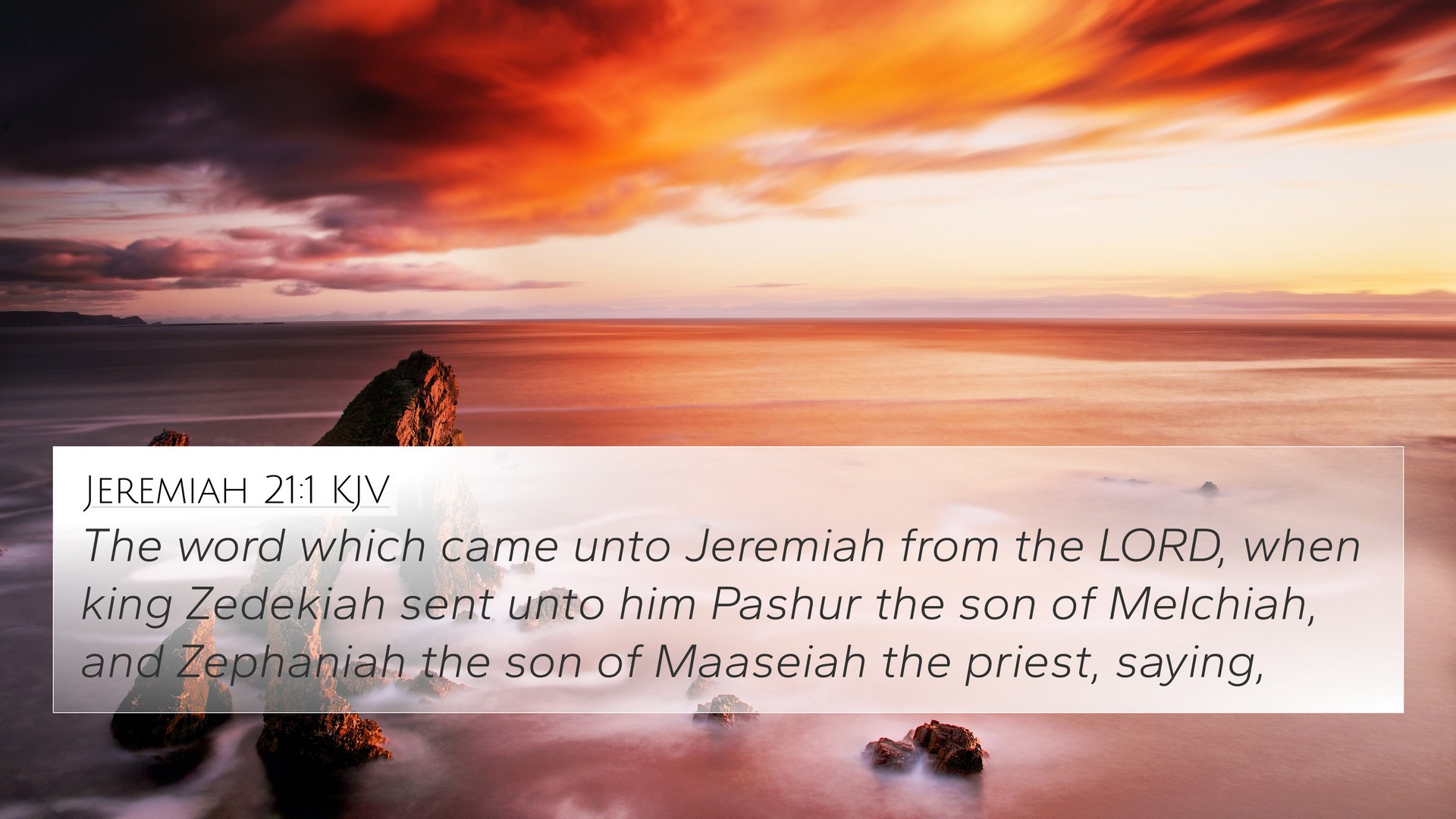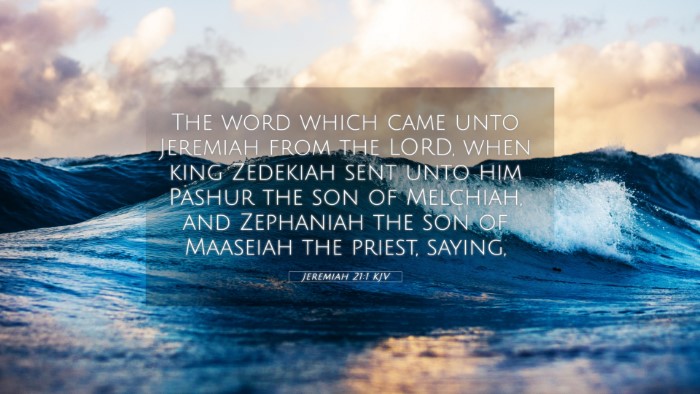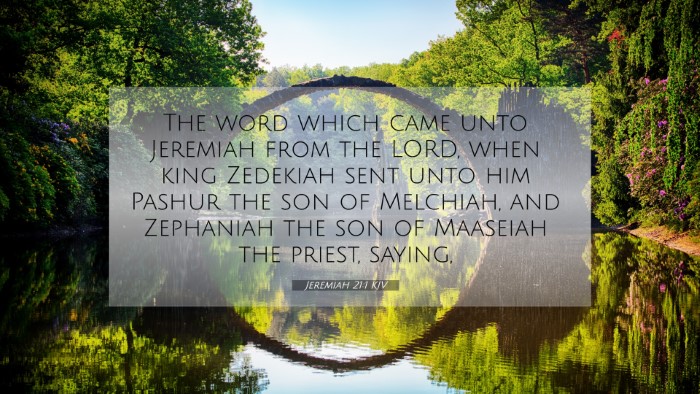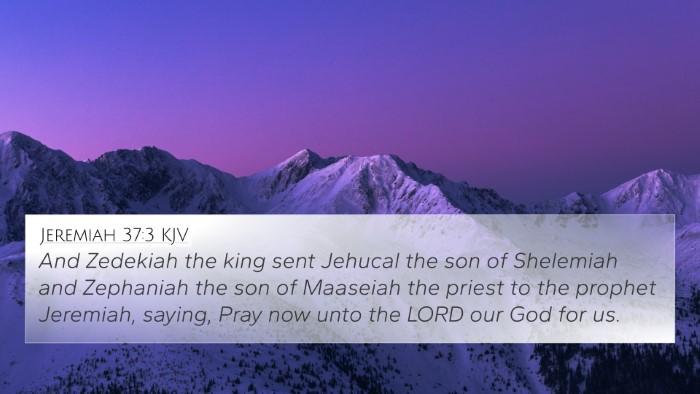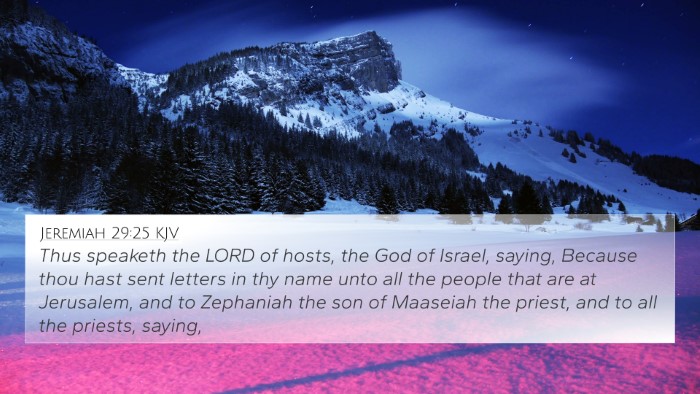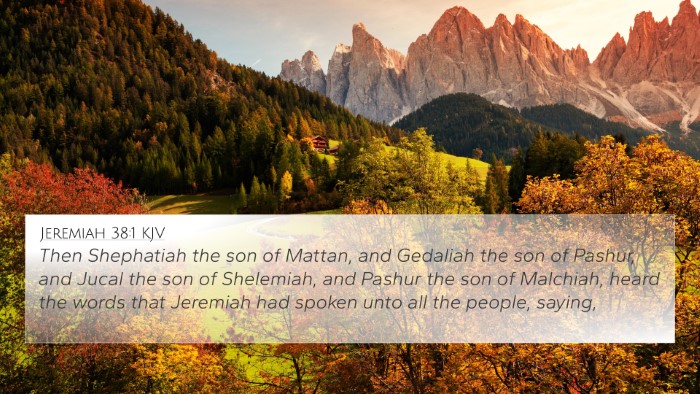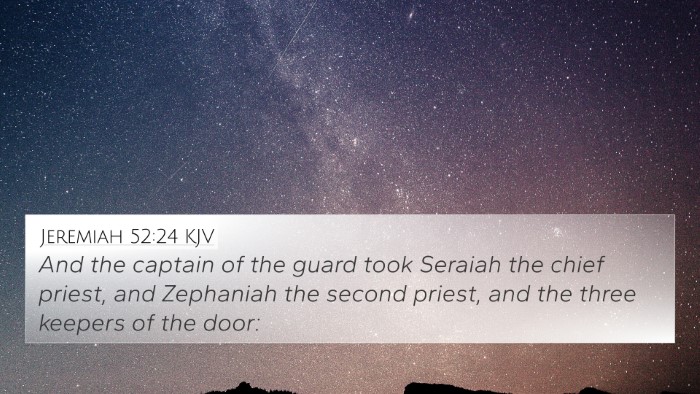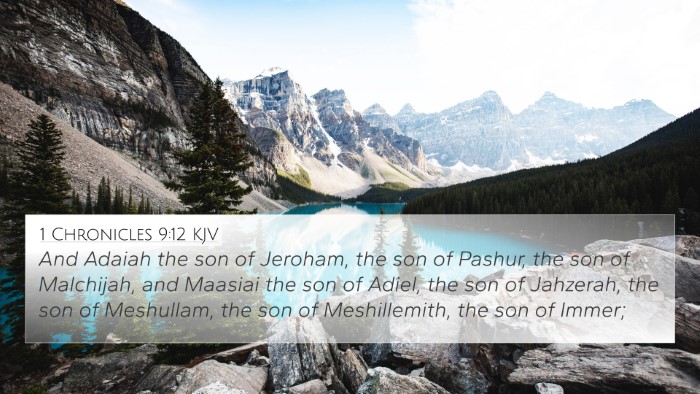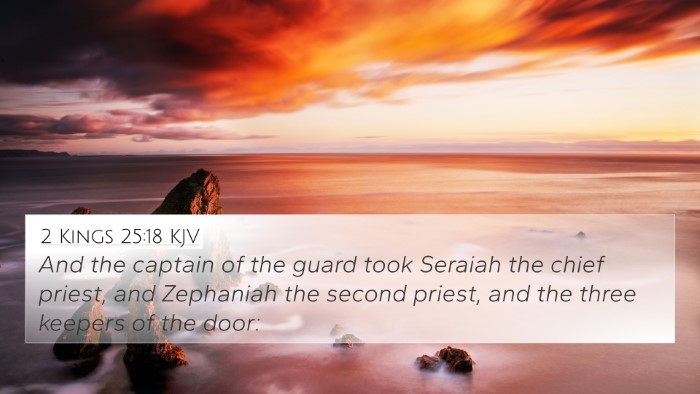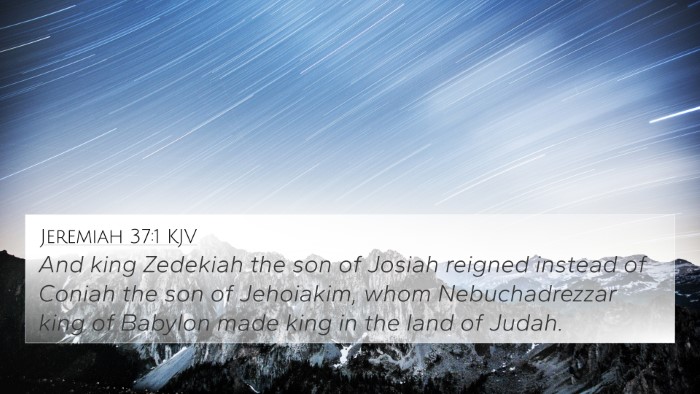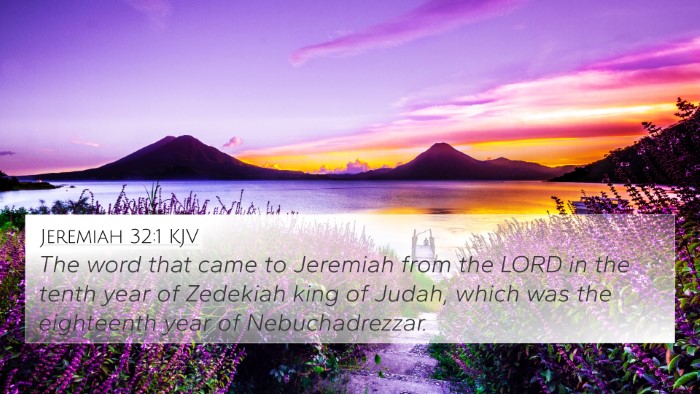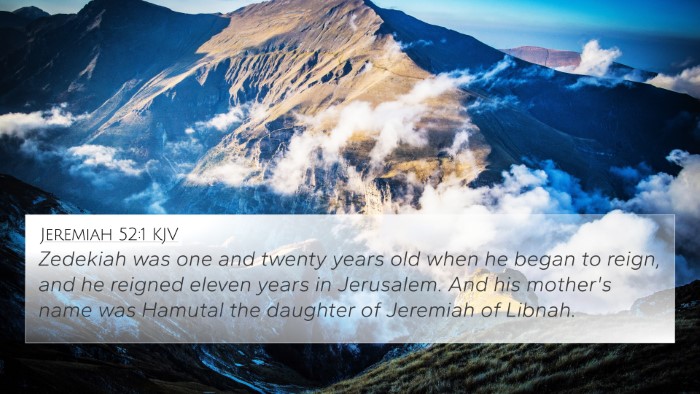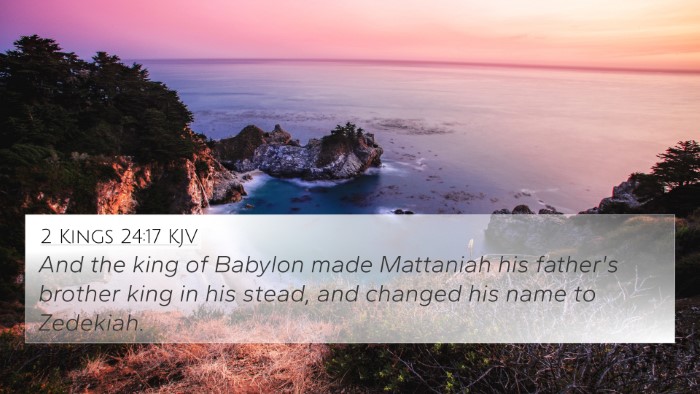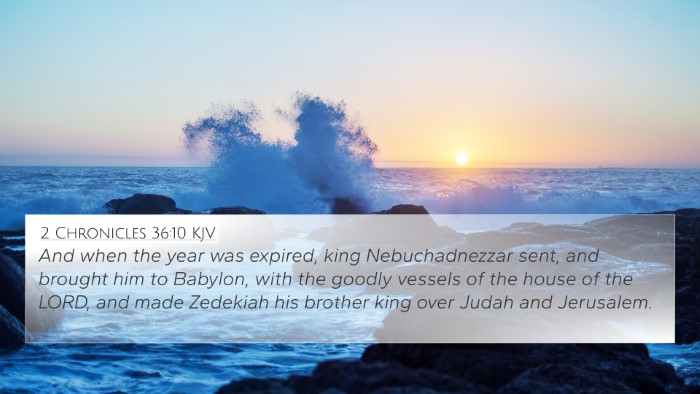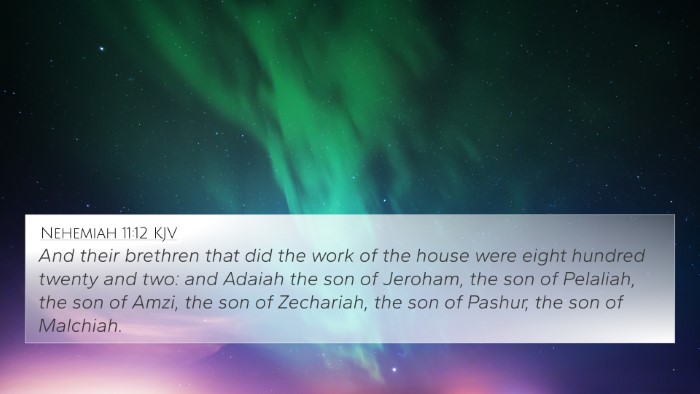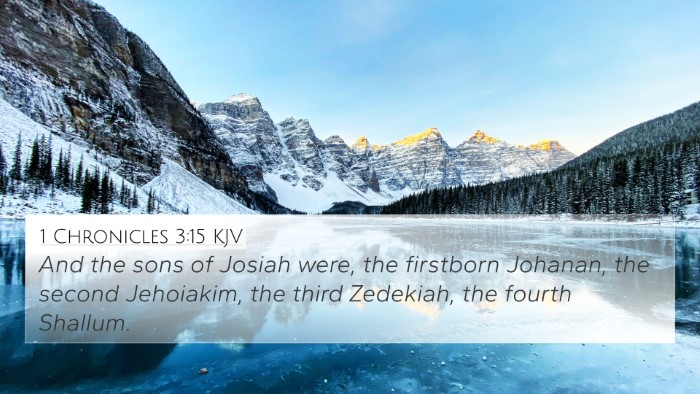Understanding Jeremiah 21:1
Jeremiah 21:1 states: "The word which came unto Jeremiah from the Lord, when king Zedekiah sent unto him Pashur the son of Melchiah, and Zephaniah the son of Maaseiah, the priest, saying," This verse serves as a pivotal point indicating a message from God during a critical period in the history of Judah.
Contextual Background
This scripture emerges in a context where Jerusalem is under siege, exemplifying a time of great turmoil. King Zedekiah, facing the impending Babylonian invasion, seeks guidance from Jeremiah, a prophet who has relentlessly warned against the city's impending destruction.
Key Themes
- Divine Communication: The phrase "the word which came unto Jeremiah" emphasizes God's direct communication with His prophet, reinforcing the theme of prophetic authority.
- Political Desperation: Zedekiah's inquiry highlights the desperate measures taken by leaders when faced with calamity, seeking counsel from God.
- Judgment and Warning: The chapter addresses themes of judgment, reflecting on the consequences of disobedience to God.
Interpretative Insights
According to Matthew Henry, this verse indicates that God’s words bring critical guidance during times of distress. He emphasizes that even in times of judgment, God is accessible and willing to provide direction through His prophets.
In the view of Albert Barnes, the inquiry from Zedekiah is seen as an acknowledgment of Jeremiah’s role. This illustrates a recognition of the necessity of divine intervention when human efforts fall short.
Adam Clarke adds that the sending of Pashur and Zephaniah signifies an effort to align human authority with divine will. It underscores the importance of seeking God’s counsel in leadership decisions.
Bible Verse Cross-References
Understanding Jeremiah 21:1 can be enriched through various cross-references that showcase its connections with other scriptures:
- Jeremiah 29:7 - Calls for seeking the welfare of the city during exile.
- 2 Kings 24:20 - Contextualizes the reign of King Zedekiah.
- Isaiah 1:15 - Addresses God’s discontent with His people.
- Ezekiel 8:3 - Discusses the prophetic ministry during similar circumstances.
- 2 Chronicles 36:14-16 - Highlights the people's disregard for God’s prophets.
- Daniel 9:2 - Discusses seeking understanding through the Scriptures during captivity.
- Lamentations 2:9 - Reflects on the destruction of Jerusalem, paralleling the message in Jeremiah.
Thematic Bible Verse Connections
In reflecting on the significant themes in Jeremiah 21:1, one can explore:
- Human Authority vs. Divine Will: The dynamic between leadership and obedience to God’s word is prevalent throughout the bible.
- Prophetic Messages: Key themes found in prophetic writings, emphasizing God’s desire for His people to heed warnings.
- Crisis and Faith: The responses of leaders in times of crisis and their dependence on divine counsel appear in various narratives across the Scriptures.
Connecting Jeremiah 21:1 with New Testament Teachings
The relationship between the Old and New Testament can enhance our understanding of the themes in Jeremiah 21:1. Key links include:
- Hebrews 1:1-2 - Highlights how God spoke through prophets in times past, linking to Jeremiah’s prophetic role.
- Matthew 5:17 - Illustrates the fulfillment of the Law and the prophets, showing continuity with prophetic messages.
- Acts 7:51-52 - Discusses the rejection of the prophets, a theme found throughout Jeremiah’s life and ministry.
Tools for Bible Cross-Referencing
For further study and deeper engagement with scripture, consider utilizing these valuable resources:
- Bible concordance
- Bible cross-reference guide
- Cross-reference Bible study
- Bible reference resources
- Comprehensive Bible cross-reference materials
Conclusion
The verse Jeremiah 21:1 serves not only as a historical account but also as a deep well of theological reflection. By employing cross-referencing with other biblical texts, one can observe how themes of leadership, obedience, and divine communication resonate throughout scripture.
To maximize understanding, delve into the connections between this verse and related scriptures, enabling a comprehensive grasp of God’s message both in the Old Testament context and its implications in the New Testament.
